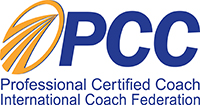Learning might seem like a simple equation.
You take your current level of knowledge. Then you add new knowledge. As a result, your level of knowledge rises. You have learned something new.
Current Knowledge + New Knowledge = Learning
This is how we usually think about learning and growth, at least. Whether it’s a new skill, a new muscle, or a new technique, we think it’s always about adding something new.
There is a lot of truth in this approach. But it denies another, more effective source of learning.
Learning isn’t only addition. Learning is also subtraction.
Learning isn’t the only form of learning. Unlearning is learning, too.
Interference
The legendary coach and author Tim Gallwey has a formula for performance:
Performance = Potential – Interference
The goal is to remove as much interference as possible. By reducing interference, you allow latent potential to thrive.
But what is interference?
In short, it’s anything that gets in the way.
Interference is the collection of “shoulds, musts and oughts” you impose on yourself — the expectations you hold yourself to that limit your possibilities.
Interference is the performance anxiety that comes with believing that your self-worth depends only on what you do and what you deliver.
Interference is the blindness you experience in high-pressure moments, because you’re preoccupied with how you’re perceived instead of what’s happening on the field of play.
Interference is the procrastination and distraction that keeps you from doing the work you’re meant to do, because of your unwillingness to be with the discomfort of committing to difficult choices.
Interference is the state of being busy for the sake of being busy and spinning your wheels without going anywhere, instead of pausing for a second, cutting your losses, and setting a new direction.
Interference is the avoidance of conflict that comes from needing to keep everyone happy, since you’re petrified of being seen as the bad guy.
Interference is the tension and stress that comes from feeling like you’re responsible for carrying the weight of the world on your shoulders, and that everything depends on your every move.
Interference is the stagnation that keeps you stuck where you are, because whatever you do it won’t be enough to meet your impossibly high bar of success.
Interference takes many shapes and forms. But they all emerge from your current belief system of how the world works. These unconscious belief patterns determine what you say, how you think, and what you do. Until you unlearn these belief patterns, your worldview will spit you out into the same direction, no matter how hard you try.
If you don’t change your worldview, your world won’t change.
Water flow
Here’s a mental image of how this works.
Imagine that every person is a flow of water. To see the light of day, this water needs to get through a faucet. You can never turn the water off, but you can adjust the amount of water that’s let through. When we’re children, our water runs free. But the older we get, the more we block certain parts of ourselves, and the less water flows through the tap. We learn that only certain parts of ourselves are acceptable to our families, friends and the world.
And so we’re left with blockages. Only a fraction of our original water flow streams out. The rest remains blocked. Some of it might seep through the cracks in strange ways. Much of it builds up behind the scenes. But it’s all there, waiting to explode.
The system is abundant with latent potential. To let it thrive, you have two choices. One is to call the water delivery company and ask them to increase the pressure, so that more water pushes through the same tiny hole – in other words, adding more potential to the system. The other option is to remove the blocks — allowing the faucet to open, and letting the natural flow run free.
Reduction
Most of us find ourselves in situations where we’re stuck. Maybe we’re not getting what we want. Or we’re not working where we want. Or we’re not growing at the rate we want. Whatever it is, we feel stuck. Chained. Constricted.
Our instinctive reaction is that new information will get us what we want. We think that if we find the right answer, somewhere out there on the internet, then our problems will be solved. “If only I knew the answer…THEN I would be fine.” We think it’s only a matter of adding more knowledge.
But that’s not how it works. Given how much information we have available at our fingertips, “if more information was the answer, then we’d all be billionaires with perfect abs,” as Derek Sivers says.
You can try to learn more solutions. Or you can unlearn the problem itself.
You can unlearn the unconscious belief patterns that create your obstacles in the first place. You can unlearn the collection of expectations that blind you to what you want. And you can unlearn and let go of the paradigms that keep you stuck where you are.
Wisdom is not an abundance of knowledge. Instead, it’s simplicity. “I know that I have still before me a difficult path to traverse,” Gandhi wrote in the last lines of his autobiography. “I must reduce myself to zero.”
How close to zero are you willing to go? How much do you dare to unlearn?
